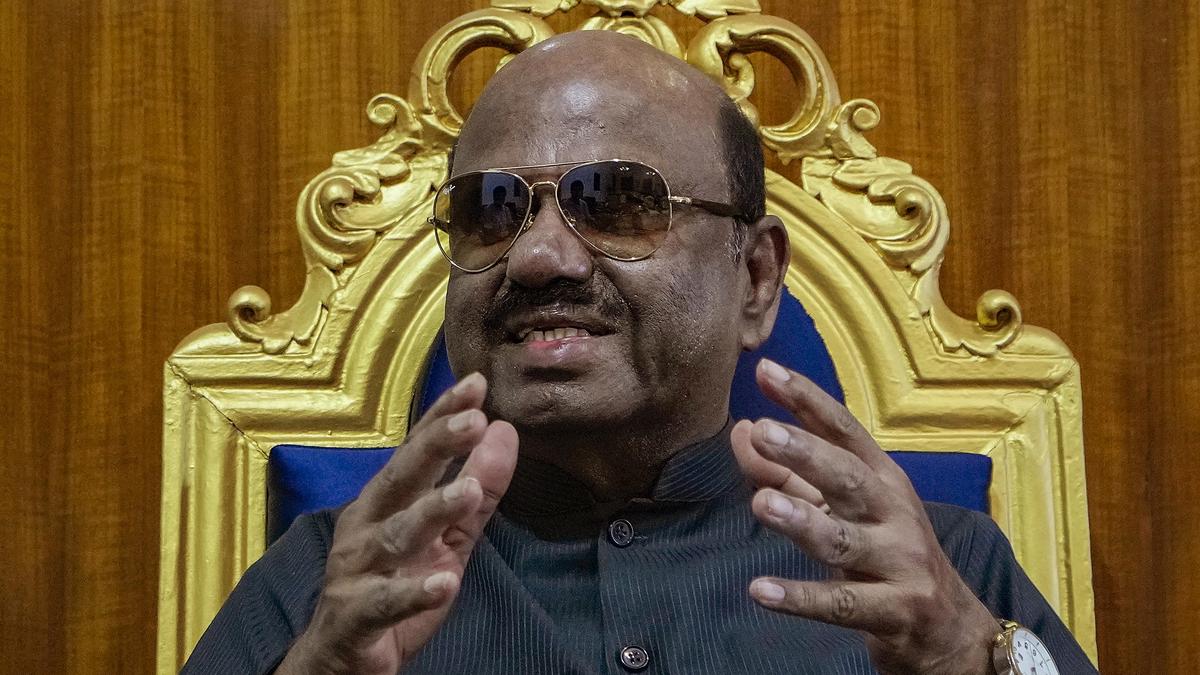
Is the West Bengal Governor immune from criminal prosecution amid sexual harassment allegations? | Explained Premium
The Hindu
A woman staff member of the Raj Bhavan lodged a sexual harassment complaint against West Bengal Governor C.V. Ananda Bose. The Hindu explores the concept of immunity for governors under Article 361 and what judicial precedents state
The story so far: West Bengal Governor C.V. Ananda Bose on May 5 wrote to Raj Bhavan staff and asked them to ignore any communication from the Kolkata Police in connection with a sexual harassment complaint filed against him by a female Raj Bhavan employee. On May 2, the Governor also banned the entry of police personnel and Minister of State for Finance, Chandrima Bhattacharya, into the Raj Bhavan. As per the order, the West Bengal Minister’s entry was barred for “defamation and anti-constitutional media statements.”
The move came a day after the Kolkata Police constituted an eight-member special inquiry team to look into the allegations of molestation against the Governor. The team headed by Deputy Commissioner (Central) Indira Mukherjee has sought CCTV footage and summoned a few people working in Raj Bhavan.
In the letter to the Raj Bhavan staff, Mr. Bose pointed out that no criminal proceedings can be instituted against a Governor during their term of office. “Since the Governor has been granted constitutional immunity from any criminal proceedings being instituted or continued against him, it logically follows that the police cannot investigate/inquire into the matter in any manner whatsoever. To say that the inquiry/investigation of the police could continue even during the tenure of the Governor though no court can take cognisance of the final report, would be in derogation of the objective and essence of Art. 361 of the Constitution of India,” the statement stipulated.
The development has triggered outrage in the State’s political circles, with Chief Minister Mamata Banerjee reprimanding the Governor’s alleged actions. “The tears of the woman broke my heart,” Ms. Banerjee said. The ruling party — the Trinamool Congress— has also called the incident “appalling and unthinkable.”
Article 361 of the Constitution stipulates that the President, the Governor or the Rajpramukh of any State “shall not be answerable to any court for the exercise and performance of the powers and duties of his office or for any act done or purporting to be done by him in the exercise and performance of those powers and duties.”
The provision also envisages two important sub-clauses — (1) No criminal proceedings whatsoever shall be initiated or continued against the President, or the Governor of a State, in any court during the term of his office. (2) No process for the arrest or imprisonment of the President, or the Governor of a State, shall issue from any court during his term of office.
In 2009, Andhra Pradesh Governor N D Tiwari resigned on “health grounds” after allegations of his involvement in a sex scandal emerged. Similarly, in 2017, Meghalaya Governor V Shanmuganathan tendered his resignation after sexual harassment allegations were levelled against him. Nearly 100 Raj Bhavan staff had demanded his removal for “seriously compromising” the dignity of the gubernatorial office.

The Karnataka government has drafted a comprehensive master plan for the integrated development of Kukke Subrahmanya temple, the State’s highest revenue-generating temple managed by the Hindu Religious Institutions and Charitable Endowments Department. The redevelopment initiative is estimated to cost around ₹254 crore and aims to enhance infrastructure and facilities for devotees.












